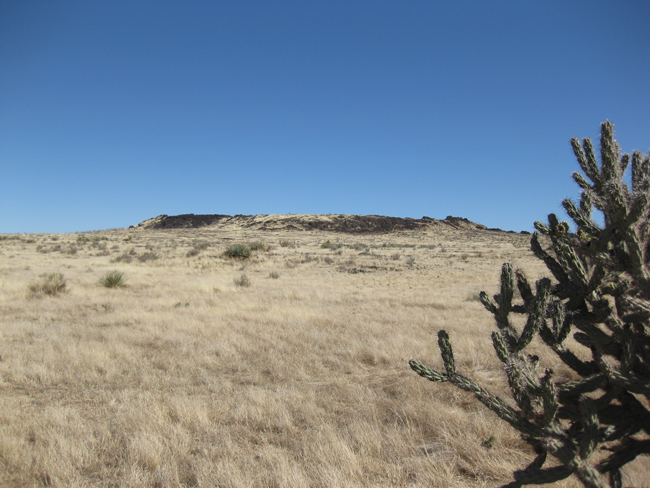
That’s Aden Crater, a Pleistocene shield volcano in southern New Mexico.
Here’s what it looks like from above (Google Maps view):
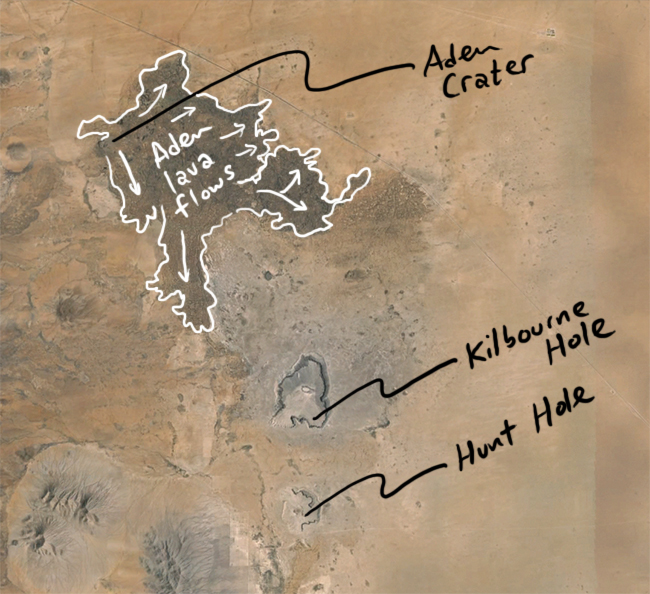
I also noted the position of two nearby maar craters: Kilbourne and Hunt Holes.
When you climb up to the edge of Aden and look in, you see the congealed and fractured remnants of a lava lake that once filled this to the brim (and indeed, spilled over the edges many times, as you can see in the satellite view above):
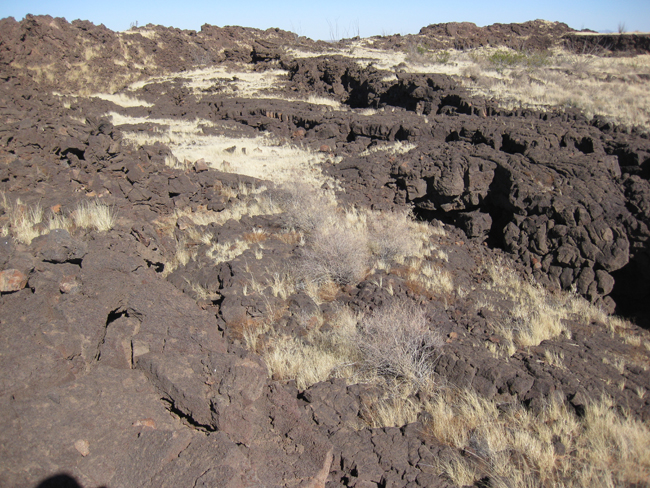
Hiking across this crust isn’t as profound as hiking across Kilauea Iki, but it’s super neat to get to the other side and see a spatter rim with awesome features.
Here, Mando (EPCC) points at the accumulated blips and bombs that make up the spatter rim.
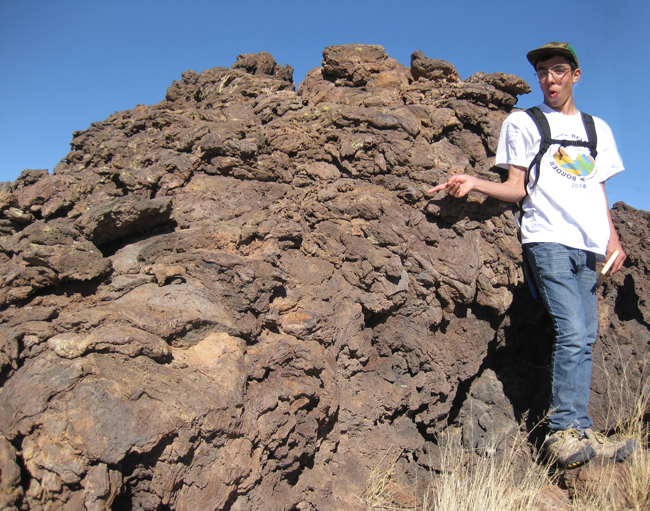
An individual spatter bomblet looks like this:
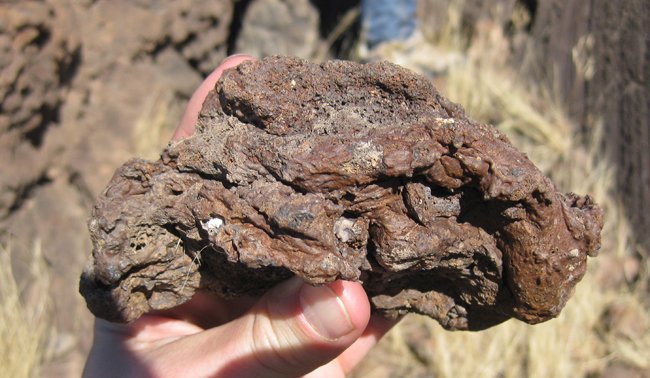
And here’s what a few dozen of them look like, all welded together:
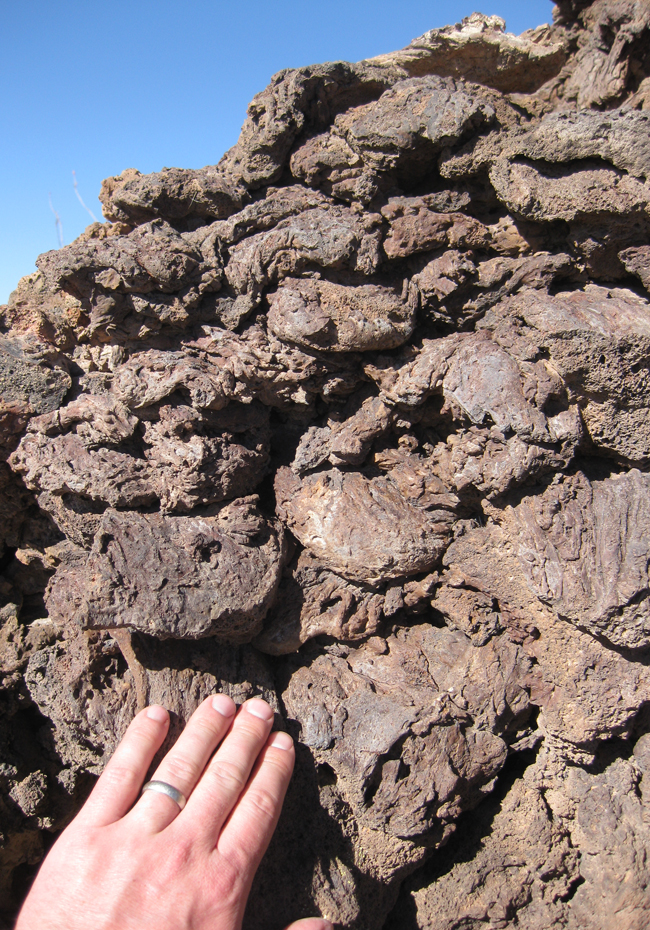
As I told the students then, this is a strong visual echo of a Mongolian latrine in mid-winter!
Nearby, there were super cool lava “slicks”:
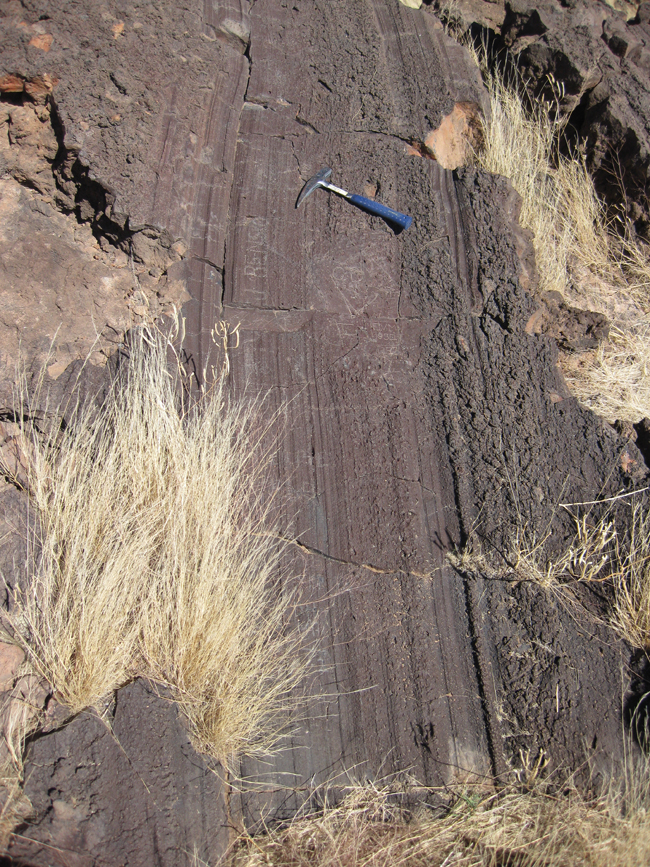
Ernie stands atop (the volcanic vent would have been behind him):
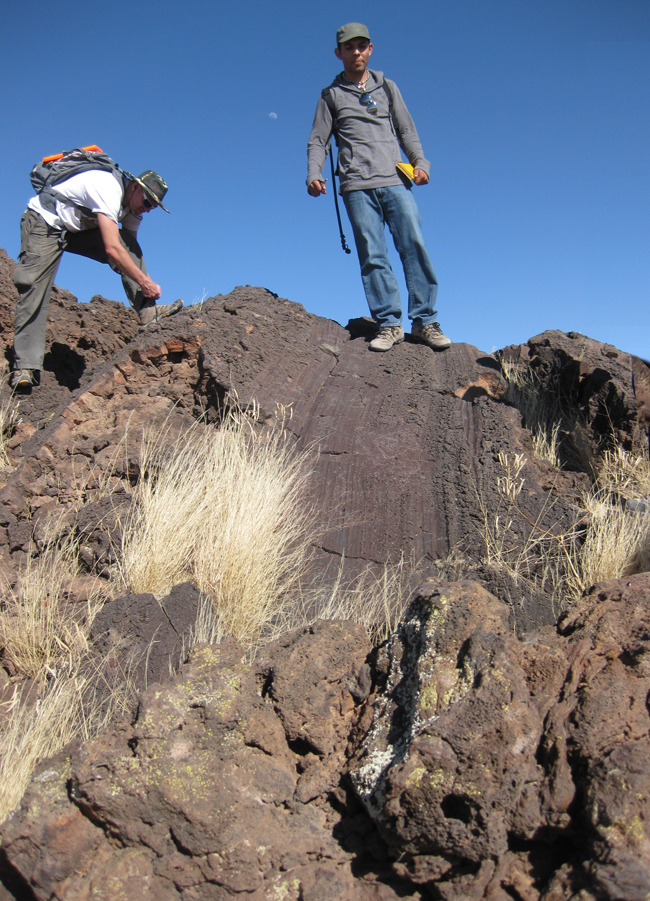
And down in the foreground, you can see the big bomb/blob that slid down and made these striations:
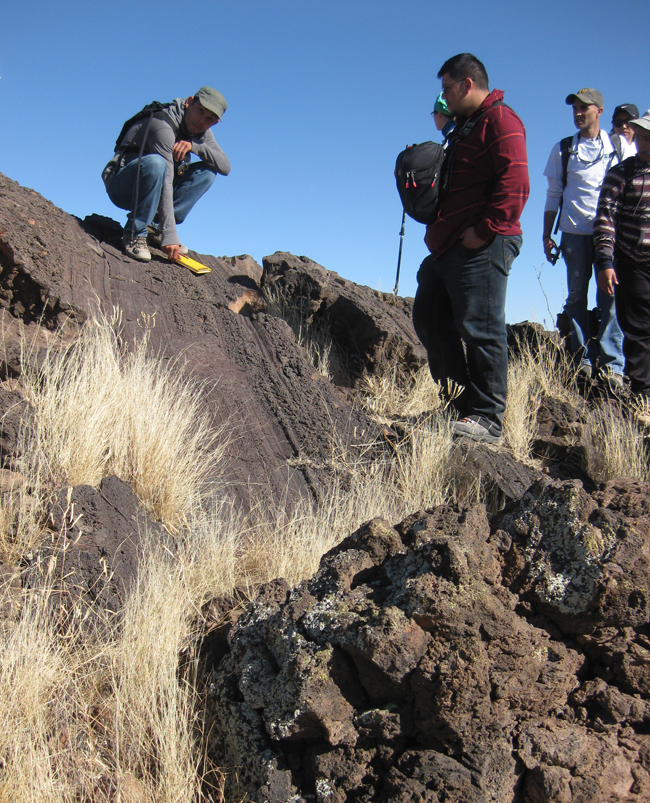
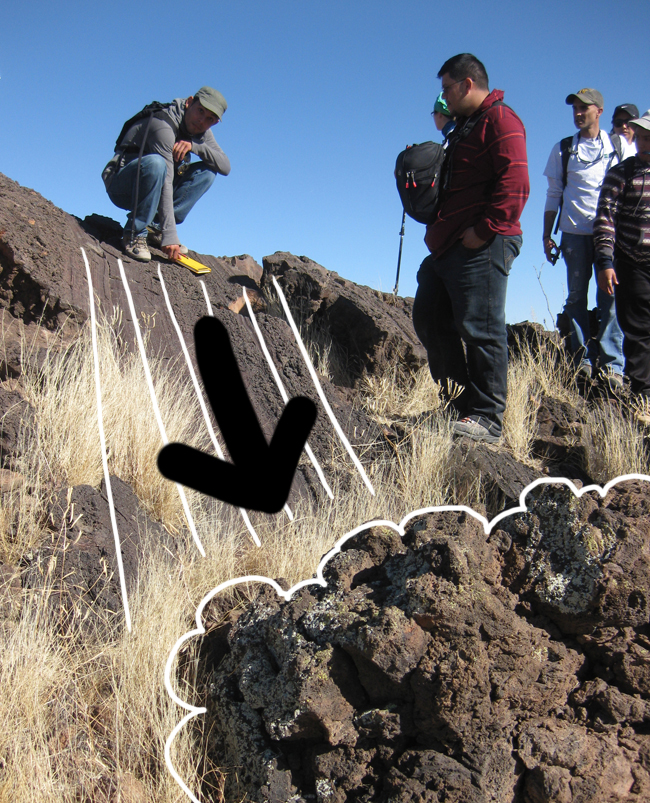
A little mosey further, and we came to a fumarole vent which became the tomb of an unwitting giant ground sloth.
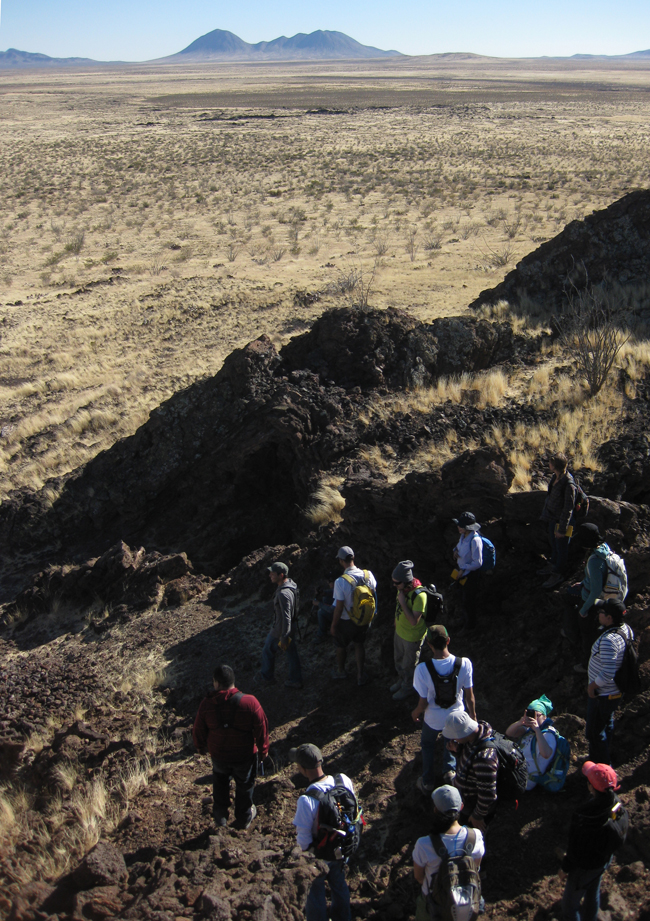
The skeleton is long gone, so here’s some students waving from the fumarole lip instead:

Looking away to the east, we could see the valley created when a lava tube collapsed:
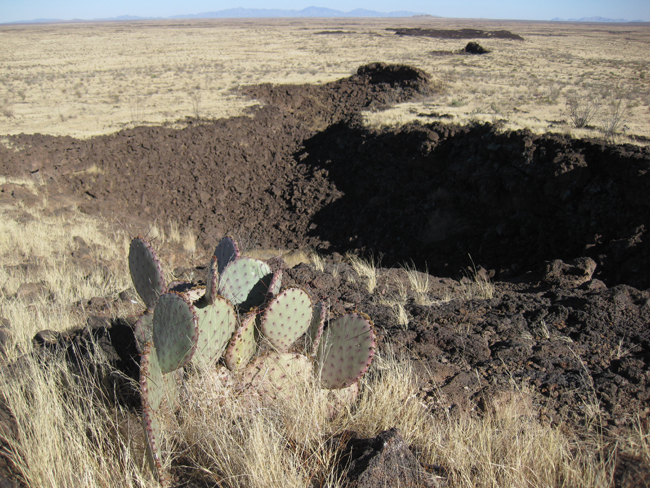
For many of the NOVA students, this was the first time ever visiting a real volcano. They were psyched!
Rob (EPCC faculty), Sergio (EPCC), Josh (NOVA), Mercer (NOVA), Adriana (EPCC), and Denise (EPCC) enjoy the warm sunlight on the cool lava:
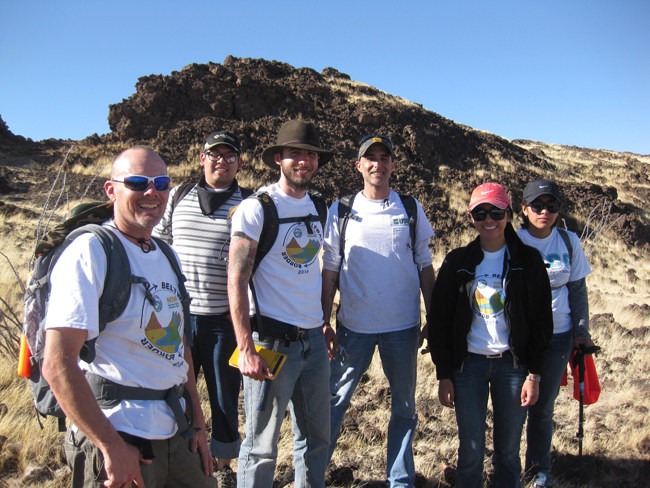
What a cool spot. Really worth the time to visit if you find yourself in the empty reaches of southern New Mexico.

Neat! Before this anytime someone said shield volcano and New Mexico together, I thought of Sierra Grande in the northeast. Sierra Grande is sort of the quintessential shield volcano, at least in my mind.
That lava field does have a number of interesting features. The lava-tube collapse features seem to predominate. But there are some interesting circular features in some places that look like the lava in tubes broke thru the ceiling crust and formed short-lived craters. One of the best formed ones I see (east & a bit south [100 degrees] of Aden about 2.3 miles), the crater measures about 75 feet in diameter and the ‘spatter’ extends out maybe another 40 feet. Even more interesting the features you can measure using Google Earth.